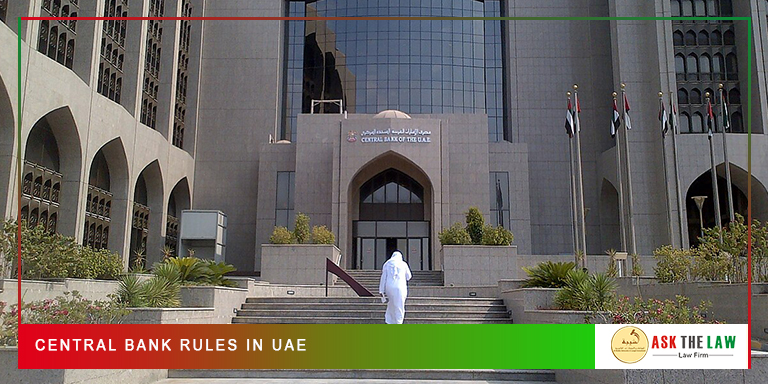
Central Bank Rules in UAE
There is no doubt that UAE has become a global business hub. Investors and entrepreneurs have found amazing business opportunities in Dubai. The Central Bank of the UAE (CBUAE) is evolving with time to enhance the financial sector and keep business operations running. The rules and regulations in the UAE banking system ensure financial stability and economic growth. Moreover, the laws and regulations of the banking system strengthen financial institutions.
Framework of the UAE Central Bank
The CBUAE oversees the banks to ensure corrective measures of monetary policies and financial services within the country. It has objectives to achieve that enhance the financial sector of the UAE:
Financial Stability:
The CBUAE’s fundamental objective is to ensure price stability by implementing effective monetary policies. It operates the money supply, monitors foreign exchange reserves, and controls interest rates.
Run Audit Checks
The CBUAE conducts bank audit reports to regulate financial rules in the banking system. The authority must also ensure licenses for all UAE banks and take strict legal action against those who violate the banking rules.
Protecting Consumer Rights
The CBUAE ensures that consumer rights are protected, especially when agreements related to leases or loans are made. It has mandated that every bank vet contracts and agreements to ensure compliance with banking laws.
Providing a Healthy Financial Environment
The CBUAE aims to promote a positive and secure financial environment amongst its users. Ongoing innovations, such as the digital banking system, have gained the trust of many consumers.
Important Regulations of the CBUAE
Some certain rules and regulations are CBUAE follows to combat the financial risks:
- Financial Terrorism and Anti-Money Laundering (AML)
The CBUAE has strict policies for implementing anti-money laundering strategies in banks. It has taken several steps that the financial institutions have to follow:
- Monitor transactions of clients carefully
- Any financial suspicious activity from any bank account shall be reported to the Financial Intelligence Unit (FIU)
- Proactively watch internal operations and compliance with the banking laws.
Taking these measures ensures financial stability in the international market, as they align with the global standards of the Financial Action Task Force (FATF).
- Regulating Digital Banking
In the era of digitization, banks must stay caught up. The CBUAE has introduced a digital banking system to support the fintech industry. The main aspects of digital banking are:
- License required for banks providing digital banking services
- Ensuring safe transactions and data protection
- Supporting innovation while mitigating the risks involved with digital financial services
- Ensuring Adequate Capital
The CBUAE has capital adequacy rules based on Basel III standards, ensuring financial stability in banks. Financial institutions must maintain sufficient capital to manage losses and economic shocks.
- Protecting Consumer Rights
The CBUAE understands the users’ security concerns. Therefore, some rules have been made mandatory to develop a relationship of trust:
- Transparency in disclosing fees, terms, and conditions for loans, leases, and interest rates
- Ensuring ethical lending practices to avoid excessive burdens of debts
- Efficient complaint mechanism for customers
- Introduction of Cryptocurrency and Virtual Assets
The UAE has evolved with time. To encourage cryptocurrency in the international market, it has introduced the use of cryptocurrency and other virtual assets. The CBUAE will oversee the licensing requirements and ensure that the banks implement policies to prevent money laundering.
- Extensive Supervision
The CBUAE oversees financial institutions and banks and conducts audit reports to ensure their regular operations. This approach has minimized financial risks and improved financial stability.
Impact of CBUAE Rules on the Financial Sector
The UAE has a better financial sector with the new rules implemented by the CBUAE. Not only has it benefitted financial institutions, but the customers of the banking system have also appreciated the digital transformation. The following are notable changes in the financial sector:
- Increased Financial Stability
Capital adequacy rules and extensive supervision have enhanced financial stability by building resilience amongst financial institutions, ensuring stability even if economic growth pauses for a while.
- Foster Confidence in Consumers
The efficient and transparent measures taken in loan and lease agreements have boosted users’ confidence. They are well-informed about the terms and conditions of interest rates, loans, and lease agreements.
- Financial Innovation and Alignment with Global Standards
The CBUAE has proved that the UAE has modernized in many ways. It has embraced the latest digital transformation in the banking system and ensured that those ideas align with the best global practices for investors and other financial institutions.
Are There Any Challenges to CBUAE Rules?
Whenever a new thing is introduced in the market, it has challenges and opportunities. Maintaining the quality of digital banking products would involve costs. Consequently, it would be difficult to adapt to changes, especially when users are unfamiliar with the latest world trends in the fintech industry. However, these challenges are to be resolved by the UAE government to ensure a modernistic approach in the finance industry.
Future of the UAE Banking System
In the future, the CBUAE will progress with sustainable finance that will regulate the companies working on environmentally friendly banking practices. However, cybersecurity laws will be stringent over time because online scams and hacking have become common in digital banking systems.
Is UAE Ready for Digital Banking?
If we see the influx of expatriates in the UAE, we can assume that the banking system has been strengthened well for upcoming investors and entrepreneurs. Recent developments in the UAE banking system have enhanced transparency and aligned with international banking practices.
The UAE Banking System is remodeled
Introducing digital banking, making strict laws against money laundering, and adding the rule of capital adequacy have ensured that UAE banks can handle tough situations such as the economic crisis. However, it has also boosted customers’ confidence in digital banking as they have strict data protection policies that keep consumers informed and warn them about their privacy policies. The UAE is taking its economy to the next level with cryptocurrency and virtual assets. If you are in the UAE, you must experience a digital banking system and find out how cryptocurrency impacts your lifestyle.
Learn More: Top Financial Lawyers in Dubai


